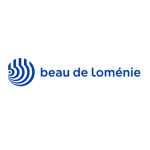Since September 2020, the European Union Intellectual Property Office (EUIPO) has so far invalidated six trademarks made up of reproductions of Banksy's iconic works registered by Pest Control Office Limited, a company set up to represent Banksy's interests while preserving his anonymity:

The strategy implemented through this company was to register trademarks in order to have a legal title to oppose against anyone who would like to trade in Banksy's works without his authorisation (all other reproductions of his works remaining free).
EUIPO decided that the registrant had never had the intention to use them in accordance with their function, namely to designate goods or services. The registration of these trademarks had been made with the sole aim of acquiring an exclusive right to this sign to replace the copyright that Banksy could not invoke without losing his anonymity. Therefore the trademarks were declared to have been filed in bad-faith.
These decisions leave little room for doubt as to the fate of the new European trademark No. 018118853, filed on August 30 2019 for the "Flower Thower", which is also the subject of a request for cancellation, and more than ever may force Banksy to drop his anonymity if he wants to avoid the commercial exploitation of his works by others.
It also highlights one of the many aspects of the notion of bad-faith, a notion which is not defined by the legal texts.
In the ‘Banksy decisions’, bad faith results from the will to obtain an exclusive right without intending to use it in accordance with the function of the trademark. This is a form of undue appropriation.
Bad faith can also result from successive filings, as the European General Court (EGC) recently ruled in the ‘Monopoly’ case on April 21 2021. The repeat filings of the trademark Monopoly was sanctioned even though this filing had been undertaken for a broader list of products, because they were in fact done to avoid the need to submit proof of use in the case of opposition. According to the Court, this is contrary to the objectives of Regulation No. 207/2009, to the principles governing EU trademark law and to the rule relating to proof of use.
Other cases
This decision goes further than the decision of the CJEU of January 29 2020 in the so-called Sky case, in which the Court of Justice held that the filing of a trademark without any intention to use it constitutes an act of bad faith, if the applicant of this trademark intended either to undermine the interests of third parties in a manner inconsistent with honest practices, or to obtain, without even targeting a specific third party, an exclusive right for purposes other than those falling within the functions of a trademark.
The European General Court in a decision on October 28 2020 also ruled as filed with bad faith, the trademark filed to extend the protection of a different earlier sign, with a defensive purpose. The intention, at the time of filing was in fact to strengthen the Target Partners trademark by filing a Target trademark, or to prevent third parties from using Target.
Bad faith can also be the will to undermine a specific third party: in another decision, the European General Court cancelled the European trademark Choumicha Saveurs, Choumicha being the name of a Moroccan chef, whose reputation among the Moroccan community in France and Belgium prior to the filing of the contested trade mark could be demonstrated.
The court held that it was impossible for the registrant not to be aware of the reputation of Choumicha, given that it was a wholesale food company whose manager was himself from Morocco. As the registrant's bad faith stemmed from his intention to harm, in a manner not in accordance with honest practices, the interests of a particular third party, the contested trademark is cancelled for all the goods and services it designates, including for goods for which the real owner had no use.
These various decisions define the outlines of the subjective notion of bad faith. Although the European regulations do not require intent to use when filing, one may nevertheless wonder whether these decisions do not bring us closer in some way to the US system. In any case, applicants for European trademarks should at least ensure that their applications are in accordance with this use-based logic, which remains the essential function of the trademark.
Aurélia Marie
Partner, Cabinet Beau de Lomenie












